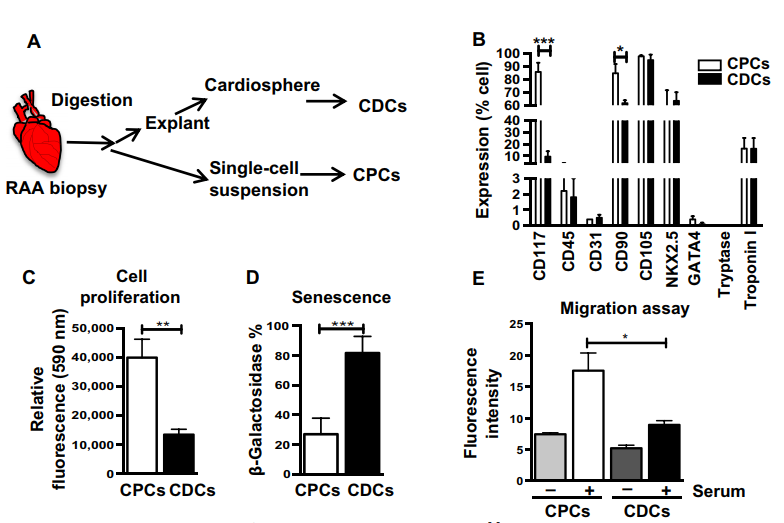Stem cell transplantation has brought a glimmer of hope for many diseases. However, in addition to observing clinical outcomes, there are currently no tools to assess the effectiveness of transplanted stem cells. However, a recent new study suggests that such a tool may have emerged. It is an exosome.
Exosomes are tiny vesicles that are secreted by cells into the blood. By analyzing the exosomes released by transplanted stem cells, the researchers can see if stem cells are working properly. Even better, exosomes are collected repeatedly with a simple blood draw. The results were published on May 22, 2019 in Science Translational Medicine, entitled“Circulating exosomes derived from transplanted progenitor cells aid the functional recovery of ischemic myocardium”
The researchers transplanted two human progenitor cells after myocardial infarction into the rat heart, including human cardiomyocyte-derived cells (CDC) and cardiac progenitor cells (CPC).
Thereafter, they purified progenitor-specific exosomes from total plasma exosomes, thereby noninvasive surveillance the activity of transplanted CDC or CPC. The analysis of exosomes showed that they delivered the cell components to the target cardiomyocytes and achieved cardiac repair.
The authors further identified the signaling pathways of the related outcome of control myocardial recovery.The researchers compared the exosome concentrations in plasma after seven days of transplantation.The concentration of CPC-specific exosomes increased 2 times compared to CDC-specific exosomes. In addition to monitoring CDC and CPC and assessing their role in helping recovery, the researchers also found that exosomes produced by cultured cells are different from exosomes produced by transplanted cells in vivo.
Exosomes contain signals from their native cells, such as proteins, nucleic acids, and miRNA, which affect receptor cells and regenerate our target organs. We now have a tool to determine if stem cell therapy is effective for every patient, not only for the heart, but also for any organ that is treated with stem cells.








